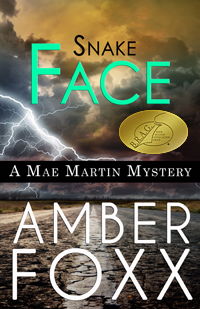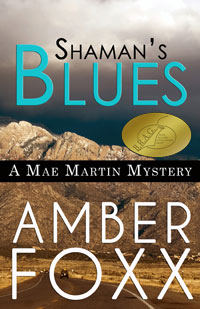
It’s natural to react when you’re criticized. When you first see a one- or two-star review, you may feel a sinking or burning sensation in your center. You may be hurt and discouraged and blame yourself Oh no—this reviewer thought my book was (dull, unbelievable, too descriptive, depressing, etc.) It must be that bad.” Or you might be hurt and angry and blame the reviewer. How could that person hate my book? It’s had nothing but good reviews until now. They have to be either an idiot or a troll.”


The safest response is to step back and make a space for reflection. Get in touch with your core self, the wise part of you that realizes you’re still valuable and whole. I know of an author who panicked over a two-star and recruited friends to write reviews. She got caught. The unreflective reaction backfired. I’ve read blog posts by authors who have argued with reviewers and giving in to this gut reaction also backfired. One even went so far as to stalk a troll who was attacking her. Needless to say, this only increased the author’s suffering.
I’ve been an actor and a choreographer, and am currently a professor and a yoga teacher as well as a writer. People have been evaluating me for my entire adult life, from reviews to student evaluations. The purpose of some of these evaluations is to help me improve and others are there to help people make decisions about engaging with my work. I’ve developed a kind of resilience to the tactless things people can say (college students are worse than reviewers, trust me) as well as gratitude for the positive responses, and a filter to sort out the legitimate from the petty. I still have an initial response to negative feedback, of course, but it doesn’t last long. In my professor role, I teach stress management, and one of the most useful skills is choosing the right kind of coping.
Emotion-focused coping helps you to calm down and process your feelings. Vent privately off-line to family and friends—the wise ones who won’t stoke your fear or hurt but will help you put it in perspective. Take time to relax with something unrelated to writing or marketing. After that, it will be easier to do problem-focused coping, and to decide if the negative review calls for approach coping or avoidance coping. While it’s useful to approach problems, it’s best to avoid hostile people, and to avoid engaging with reviewers or random raters in general.
Talk with your critique partners, if a review seriously troubles you. They can help you sort things out. Perhaps there’s not much basis for what a reviewer says. Sometimes, though, a review points something you could work on. It might be your marketing, targeting it more effectively to the right reader. It might be pace or dialogue. Approach the reviews that give you something useful to work on and avoid worrying about the ones that say nothing of value.
If a comment in a low-rated review is factual and well-written, it’s useful. It may filter out readers who have similar tastes and help make the right book-and-reader match. I have a two-star from a reader who wanted either a more conventional mystery or a more powerful paranormal element. The way I blended the genres didn’t suit her. She doesn’t say I wrote badly, just that the book wasn’t right for her. I got my first one-star review recently—something that’s bound to happen to every author eventually. It’s short and opinionated, without support or explanation. I don’t need to do anything with it. There’s no constructive feedback—nor is the reader-reviewer obligated to provide any. The same book has an equally short five-star that is no more helpful to a shopper who is trying to decide whether to read it or not. Potential readers tend to study the balanced, thoughtful three-star and four-star reviews more than the extremes in either direction or the one-liners. With the amount of review fraud that’s been exposed lately (and long suspected), book shoppers question the legitimacy of the reviews when authors have only good ones.
Pick a book you love by a Pulitzer-prize-winning best-selling author, a book you would give a five-star review. Read the one-star and two-star reviews. No one can please everyone. In my book club, the verdict on books we read is seldom unanimous, and the discussion gets much more interesting when it isn’t. If you have a variety of reviews, book shoppers will encounter something like that conversation, and it’s going to provoke more thought and curiosity than a bland landscape of praise.
Amber Foxx is the author of the Mae Martin Psychic Mystery Series. Books two and three in the series, Shaman’s Blues and Snake Face, received B.R.A.G. Medallions. She reviews books and blogs about everything from mindfulness and meditation to psychic phenomena to life in New Mexico—whatever appeals to her wide-ranging mind—at Amber Foxx’s website. She blogs about writing on the group blog, Ladies of Mystery. Her books are available through all online retailers.
I like your advice on stepping back and using restraint from reacting emotionally to a review that is not positive. If it is a personal attack or gives no critique, ignore it – most readers will. If the reviewer takes the time to explain their concerns with your work, consider what they say. You may not agree with their thoughts but they just may have a point and a lesson is learned.
Book bloggers are a different reviewer. Generally the review has been requested- I do not believe most respected bloggers would agree to give only a positive review. These reviewers take the time to read your book and give it an honest critique, thank them for their time and thoughts. This is the proper etiquette and is often neglected.
I did as you suggested, Amber, and found that negative reviews are part of the business of writing books. Even if you think you have written the next great novel, think about these few results from amazon.com-
Hawaii by Michener – 17 one star reviews
Gone with the Wind by Mitchell – 33 one star reviews
Pride and Prejudice by Austen 59 one star reviews
The Shining by King – 34 one star reviews
The Hunt for Red October by Clancy – 28 one star reviews
Good advice, Amber. I’ve had sone bad reviews. A couple complained that the book was “preachy,” but the main character is a 19th-century Methodist. Complaints noted, but it was a matter of taste. Another review completely ripped the book, but was not helpful about what precisely was wrong. Like you, I find that stepping back & taking a deep breath is a helpful process. P.S. I hear you about college students. I was an adjunct prof for six years!
Thanks for your additions to this, Geri. You made a good point about bloggers being different from Goodreads or retail site reviewers. I appreciate your one-star research results.
Thoughtful post Amber. Thanks for a great roundup of reminders. I recently talked to a book group after they’d read my book and I was ready for some people to hate it. (And some to love it!) What I wasn’t ready for, and I found the sense of stunned hurt lasted for a while, was that they all had a “meh” reaction. Luke warm. It was excruciating. And character building 🙂
Nice piece Amber … however ….
Just kidding.
I think it’s important to be able to deal with a bad review in a professional manner in this business. After all, that’s what it is – a business. The readers leaving reviews are customers, not friends (although we might hope that they feel more like friends by the time they’re done reading). It’s a strange industry, in that we can’t adjust the service we provide to suit an individual customer’s needs.
Then there are publishers and agents. If a single review can send an author into meltdown, imagine what would happen when they receive their first form rejection, or worse still, a constructive rejection from the people with the real power to make or break a career.
Many reviewers aren’t writers, in the same way that many restaurant critics aren’t chefs and movie critics aren’t film makers. Which means that, although they might know how long it takes to write a book, they may not understand the personal investment in each carefully crafted page.
Reviews are what they are, the same as returning a plate to the kitchen when it’s not to our taste/something is wrong, or leaving a tip for excellent service. Sure, they can be hard to take, but as business people, bad reviews are not even a risk, they’re a certainty for anyone hoping for a long and satisfying career in the industry.
Just my 2 cents … feel free to disagree … constructively …
I agree G.J.
It is a business- especially as a self-published author. In almost every line of business you receive reviews and often they are harsh and seemingly unfair. It is wise to pick through these reviews, good and bad, and consider the points made – it may make you better at your job.
Writers are particularly sensitive since writing a book is an emotional experience which usually entails putting quite a bit of yourself into your book. It is wise to remember that some readers will take the time to give you their thoughts on your book and others are just mean spirited. The first can be helpful and the second a waste of time to engage. This type of reviewer (not sure what else to call them!) may be just looking for a fight so don’t walk into one!
As you said, reviews will come at you from many directions- agents, publishers, other writers and readers. Consider what you feel is worthwhile and ignore the rest. It is the only way to survive this difficult business!